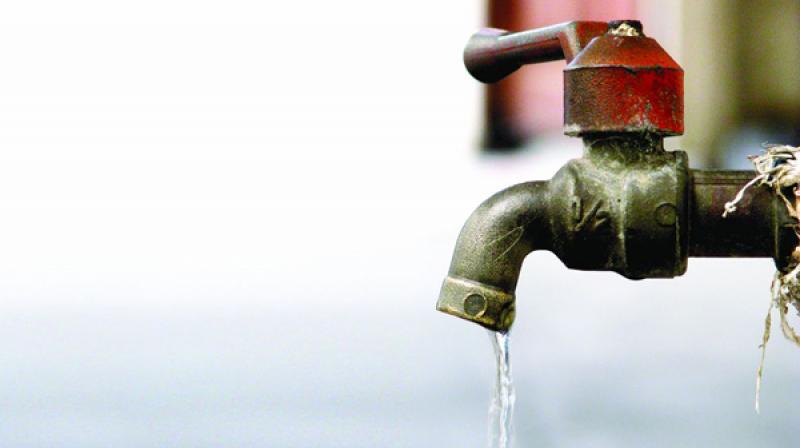Looming Threat: Taps in India to run dry soon

Hyderabad: A report from the World Resources Institute (WRI) says that India’s surface and groundwater are highly stressed. Ground water tables in many aquifers situated in the northern part of the country have declined at a rate of more than eight centimetres per year from 1990 to 2014.
In addition to rivers, lakes and streams, groundwater is the major source of water for India's arable land of 159.7 million hectares (394.6 million acres) employing 50 per cent of Indians engaged in agriculture.
India is among 17 countries that are home to a quarter of the world’s population and are facing “extremely high” water stress, close to “Day Zero” conditions when the taps run dry, the report says ominously.
These 17 worst-hit countries are in crisis because of overdrawing of water by the agricultural sector for irrigation, by industries and by municipal corporations which withdrew 80 of the available water supply every year.
Around 13 hydrological risk indicators considered in the report showed that Qatar, Israel, Lebanon, Iran, Jordan, Libya, Kuwa-it, Saudi Arabia, Eritrea, UAE, San Marino, Bahra-in, India, Pakistan, Turkm-enistan, Oman and Bots-wana are the 17 countries classified as being in the “extremely high” category.
Citing the example of Chennai, Cape Town in South Africa and Rome, where residents narrowly avoided their own "Day Zero" water shut-off, the report says that water withdrawals globally have more than doubled since the 1960s due to growing demand - and it shows no sign of slowing down.
India, which stands 13th on the list of “extremely high” water stressed countries, has more reasons to worry because it has more than three times the population of the other 16 countries in this category combined.
“The recent water crisis in Chennai gained global attention, but various other areas in India are also experiencing chronic water stress. India can manage its water risk with the help of reliable and robust data pertaining to rainfall, surface and groundwater to develop strategies that strengthen resilience,” Shashi Shekh-ar, former secretary of India’s ministry of water resources, and senior fellow of WRI India, said.

